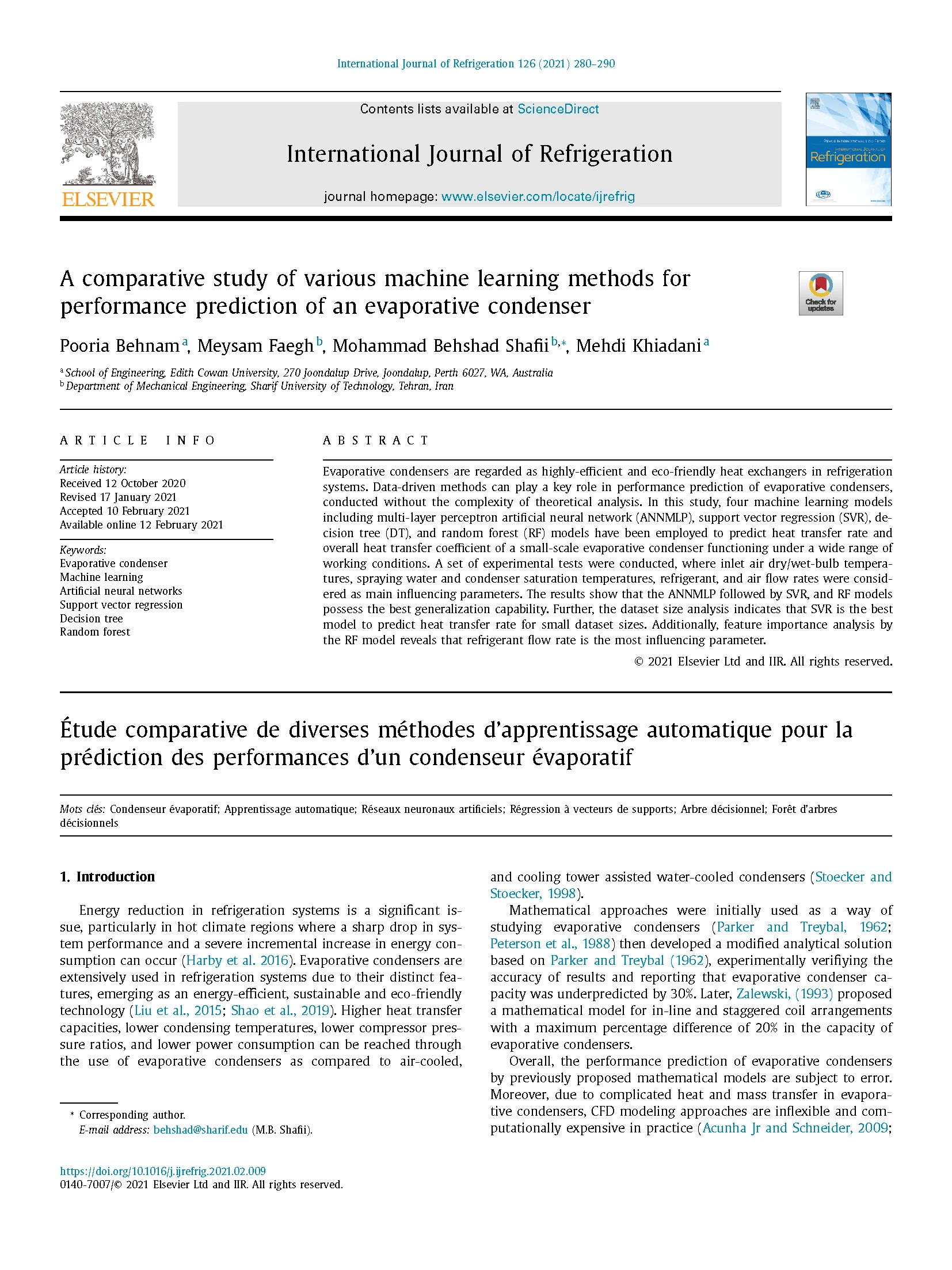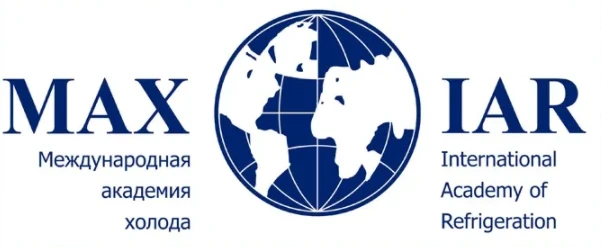Автор: Pooria B., Meysam F., Mohammad B.S.
Год: 2023Язык: АнглийскийТип: Статьи
Evaporative condensers are regarded as highly-efficient and eco-friendly heat exchangers in refrigeration systems. Data-driven methods can play a key role in performance prediction of evaporative condensers, conducted without the complexity of theoretical analysis. In this study, four machine learning models including multi-layer perceptron artificial neural network (ANNMLP), support vector regression (SVR), de- cision tree (DT), and random forest (RF) models have been employed to predict heat transfer rate and overall heat transfer coefficient of a small-scale evaporative condenser functioning under a wide range of working conditions. A set of experimental tests were conducted, where inlet air dry/wet-bulb tempera- tures, spraying water and condenser saturation temperatures, refrigerant, and air flow rates were considered as main influencing parameters. The results show that the ANNMLP followed by SVR, and RF models possess the best generalization capability. Further, the dataset size analysis indicates that SVR is the best model to predict heat transfer rate for small dataset sizes. Additionally, feature importance analysis by the RF model reveals that refrigerant flow rate is the most influencing parameter.














Комментарии
Войдите или зарегистрируйтесь, чтобы оставить комментарий